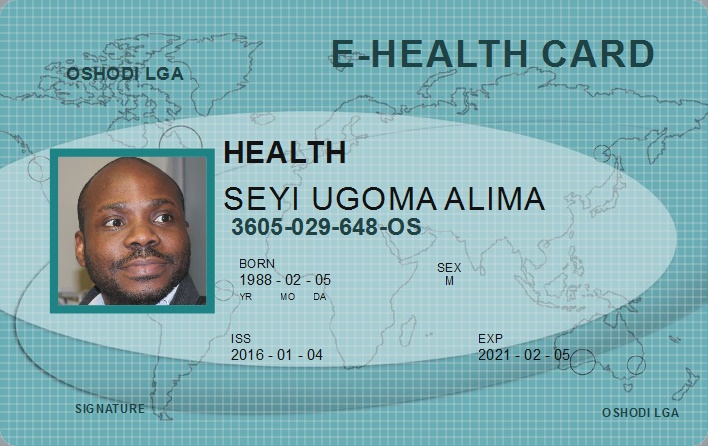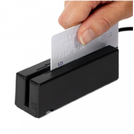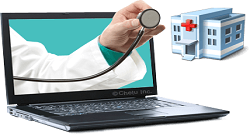Health Smart Card?
|
A Health smart card is a small card or similar device with an embedded integrated circuit chip. What makes the card smart is the embedded chip. The chip is a powerful minicomputer that can be programmed for different applications.
The chip enables a Health smart card to store and access data and applications securely and exchange data securely with readers and other systems. Health Smart card technology can provide high levels of security and privacy protection, making smart cards ideal for handling sensitive information such as identity and personal health information. |
Smart card-based systems can support numerous applications and capabilities that are important to healthcare providers:
- Accurate patient identification across organizational and geographic boundaries
- Integration with health information.
- Prevention of the issuance of duplicate IDs and ID cards
- Ability to identify all locations.
- Resistance to counterfeiting
- Risk mitigation for identity theft, data breaches, and fraudulent use
- Support for reporting, quality assurance, and education
- Mitigation of legal and financial liabilities
- Ability to securely store patient identifiers and support deactivation of lost identifiers
- Recording and updating patient demographic data and data copying, data reporting, and interface with other healthcare information systems
- Accurate patient identification across the provider network and different systems and acknowledgement of conflicting medical identifiers nationally
- Integrated verification of patient identity using external sources.
- Multifactor authentication using photos, PINs, biometrics, and graphical passwords.
- Support for emergency medical services, including providing data to authorized response personnel and tracking patient location during a disaster
- Confirmation of patient identity for HMO claims
- Verification of insurance, co-pay, deductible, and others at time of service
- Payment collection, using the card for a financial transaction
- Automatic check-in at a provider kiosk
- Data audit trails and date stamps at locations used
- Secure, convenient access to patient health information by healthcare providers using smart healthcare cards for identity authentication
- Interoperability with a range of portable devices, allowing healthcare providers to access patient information on mobile platforms/devices or via VPNs
|
Smart healthcare cards can significantly reduce hospital administrative costs while maintaining or improving current levels of quality of care and customer service.
|
• Improved patient identification
• Increased administrative efficiency • Improved medical records management • Improved quality of care • Increased privacy, security, and confidentiality |
Countries throughout North America, Europe and Asia are providing their citizens with smart cards. Some use the cards in their national healthcare programs. Others have smart card-based national ID programs.
A smart card accessed by a portable reader can provide a first responder with vital medical data at the scene or en route to the hospital. Smart cards enable immediate identification of a patient and access to the patient's medical record, even when the patient is unconscious or too flustered to convey the entire medical picture accurately or when language barriers impede effective communication. Patients benefit from more immediate and improved treatment.





